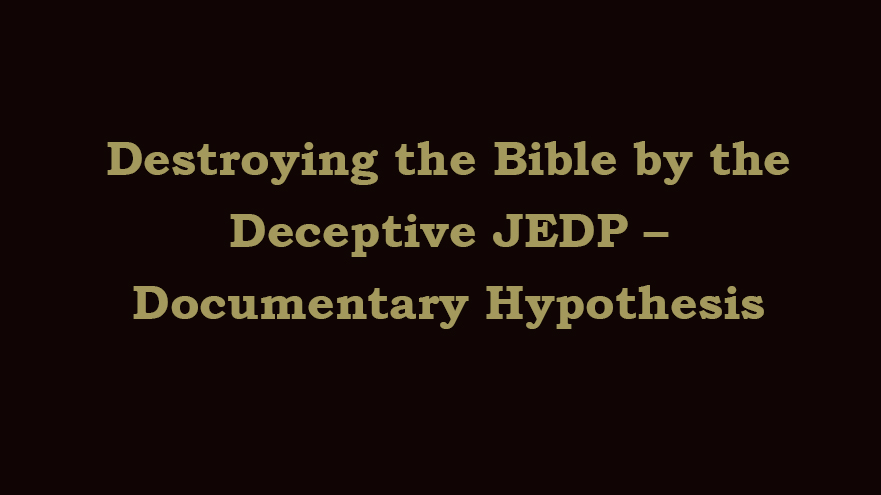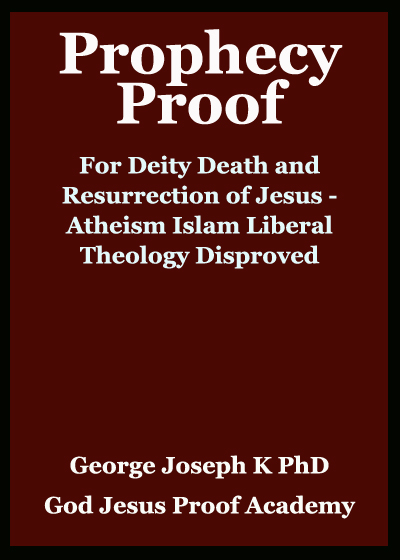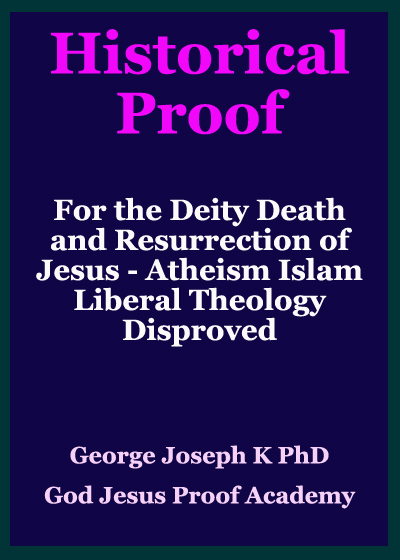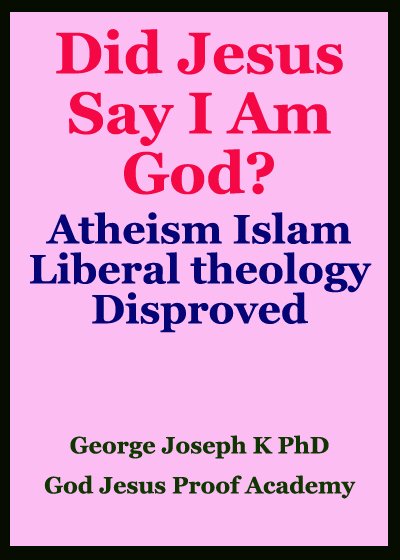
Destroying the Bible by the Deceptive JEDP – Documentary Hypothesis
THE HIGHER CRITICS AIM AT DESTROYING THE FINAL AUTHORITY OF THE BIBLE. Bible critics deluged the world with literature attempting to prove that the Pentateuch did not originate during the time of Moses, and that the laws attributed to Moses did not come into existence until several centuries after his death. So, they argue the Books were written by many persons, not by one man Moses. The question is, if there were three or four, or six, or nine authorized original writers, why not ten, twenty or fifty like that? The Higher Critical movement threatens the Christian system of doctrine and the whole fabric of systematic theology.
THE BURDEN OF PROOF IS UPON THE CRITICS. The Mosaic authorship of the Pentateuch has until very recent times been accepted without question by both Jews and Christians. This already existing general consent demands that, those discredit the claim must produce incontrovertible opposing evidence. But the evidence which the critics could produce for their case is wholly weak and circumstantial. Because they only consist of some inferences they derive from the literary analysis of the documents and also from the application of a discredited evolutionary theory to the development of the religious institutions.
CHRISTIAN VIEW OF PENTATEUCH REFUTES THE VIEWS OF THE CRITICS. The Jews and Christians believe that the Pentateuch, the first five books of the Bible, is one consistent, coherent, authentic and genuine composition, inspired by God. According to the testimony of the Jews, and the statements of the books themselves, and the reiterated corroborations of the rest of the Old Testament, and the explicit statement of the Lord Jesus (Luke 24:44; John 5:46-47) it was written by Moses (with the exception, of course, of Deuteronomy 34, possibly written by Joshua, as the Talmud states, or probably by Ezra) about fourteen centuries before the advent of Christ, and 800 years before Jeremiah. It is, moreover, a portion of the Bible that is of paramount importance, for it is the basic substratum of the whole revelation of God.
HIGHER CRITIC THEORY OF JEDP OR DOCUMENTARY HYPOTHESIS PROVED WRONG BY DEEPER STUDY. The higher critic theory is an anti-Semitic or anti-Jewish project to destroy the credibility of the Jewish book. Thus according to the Higher Critics the Pentateuch must consist of at least four completely diverse documents. These documents were the primary sources of the composition of the Hexateuch: The Yahwist or Jahwist, the Elohist, the Deuteronomist, and the Priestly Code, now generally known as J. E. D. P. These different works were composed at various periods of time, in the ninth, seventh, sixth and fifth centuries; and hence were not compiled and written by Moses. They argue that These four documents are inconsistent and incomplete. Hence the higher critics take the freedom to complete or correct it according to their whims and fancies. The narratives of the Pentateuch are considered partly mythical and legendary. The miracles recorded were the exaggerations of a later age. WITH THE HELP OF SUCH UNFOUNDED ASSUMPTIONS AND THEORIES THEY TAKE THE FREEDOM TO ASSAULT THE BIBLE IN THE WAY THEY LIKE.
THE FOLLY OF DIVIDING INTO MANY DOCUMENTS. Now the original critical division into documents was made on the supposition that several hundred years later than Moses there arose two schools of writers, one of which, in Judah, used the word “Jehovah” when they spoke of the deity, and the other, in the Northern Kingdom, “Elohim.” And so the critics came to designate one set of passages as belonging to the J document and the other to the E document. These they supposed had been cut up and pieced together by a later editor so as to make the existing continuous narrative. But when, as frequently occurred, one of these words is found in passages where it is thought the other word should have been used, it is supposed, wholly on theoretical grounds, that a mistake had been made by the editor, or, as they call him, the “redactor,” and so with no further ceremony the objection is arbitrarily removed without consulting the direct textual evidence.
But upon comparing the early texts, versions, and quotations it appears that the words, “Jehovah” and “Elohim,” were so nearly synonymous that there was originally little uniformity in their use. Jehovah is the Jewish name of the deity, and Elohim the title. The use of the words is precisely like that of the English in referring to their king or the Americans to their president. In ordinary usage, “George V.”, “the king,” and “King George” are synonymous in their meaning. So it was with the Hebrews. “Jehovah” was the name, “Elohim” the title, and “Jehovah Elohim” signified Lord God.
In Genesis and the first three chapters of Exodus (where this clue was supposed to be most decisive) Jehovah occurs in the Hebrew text 148 times, in 118 of these places other texts have either Elohim or Jehovah Elohim. In the same section, while Elohim alone occurs 179 times in the Hebrew, in 49 of the passages one or the other designation takes its place; and in the second and third chapters of Genesis where the Hebrew text has Jehovah Elohim (LORD God) 23 times, there is only one passage in which all the texts are unanimous on this point. These facts, utterly destroy the value of the clue which the higher critics have put forward to justify their division of the Pentateuch into conflicting documents.
THERE ARE OTHER EXAMPLES TO PROVE THAT CRITICS ARE WRONG. In the Massoretic text of Exodus 18:6 we read that Jethro says to Moses, “I thy father-in-law Jethro am come,” while in the seventh verse it is said that Moses goes out to meet his father-in-law and that they exchange greetings and then come into the tent. But how could Jethro speak to Moses before they had had a meeting? The critics say that this confusion arises from the work of an editor who put two discordant accounts together without attempting to cover up the discrepancy. But scientific textual criticism completely removes the difficulty. The Septuagint, the old Syriac version, and a copy of the Samaritan Pentateuch, instead of “I thy father-in-law Jethro am come”, read, “And one said unto Moses, behold thy father-in-law Jethro” comes. Here the corruption of a single letter in the Hebrew gives us “behold” in place of “I”. When this is observed the objection disappears entirely.
Again, in Genesis 39:20-22 Joseph is said to have been put into the prison “where the king’s prisoners were bound. . . . And the keeper of the prison” promoted him. But in 40:2-4,7 it is said that he was “in ward of the house of the captain of the guard... and the captain of the guard” promoted Joseph. But this discrepancy disappears as soon as an effort is made to determine the original text. In Hebrew, “keeper of the prison” and “captain of the guard” both begin with the same word and in the passages where the “captain of the guard” causes trouble by its appearance, the Septuagint either omitted the phrase or read “keeper of the prison,” in one case being supported also by the Vulgate. In many other instances also, attention to the original text removes the difficulties which have been manufactured from apparent discrepancies in the narrative.
INSTEAD OF TEACHING THAT THE DISCREPANCIES CAN BE OVERCOME BY DEEPER STUDY, THEY TAUGHT THAT DISPANCIES PROVE BIBLE IS WRONG. THE CRITICS HAVE BASED THEIR ANALYSIS OF THE PENTATEUCH UPON THE TEXT WHICH IS FOUND IN OUR ORDINARY HEBREW BIBLES. THIS IS AN UNSCHOLARLY PROCEEDING. The fact is that while the current Hebrew text, known as the Massoretic, was not established until about the seventh century A.D.
THE FOLLOWING MATERIAL COULD FURNISH THEM AMPLE GROUND FOR CORRECTING THE MINOR PARTICULARS OF THE CURRENT HEBREW TEXT. The Greek translation known as the Septuagint was made from Hebrew manuscripts current two or three centuries before the Christian era. It is from this version that most of the quotations in the New Testament are made. The Samaritans early broke away from the Jews and began the transmission of a Hebrew text of the Pentateuch on an independent line which has continued down to the present day. Besides this three other Greek versions were made long before the establishment of the Massoretic text. The most important of these was one by Aquila, who was so punctilious that he transliterated the word Jehovah in the old Hebrew characters, instead of translating it by the Greek word meaning Lord as was done in the Septuagint. Early Syriac material often provides much information concerning the original Hebrew text. The translation into Latin known as the Vulgate preceded the Massoretic text by some centuries, and was made by Jerome, who was noted as a Hebrew scholar.
LITERARY ANALYSIS DISPROVES JEDP- DOCCUMENTARY HYPOTHESIS
THE ABSURDITY OF DOCUMENTARY HYPOTHESIS. Besides the E and J documents the critics suppose that Deuteronomy, which they designate “D”, is an independent literary production written in the time of Josiah. Furthermore, the critics pretend to have discovered by their analysis another document which they Call the Priestly Code and designate as “P”. An exhaustive examination of the entire list of words found in this P document attributed to the time of Ezekiel shows absolutely no indication of their belonging to an age later than that of Moses.
The critics analyze each book in various ways in such a way to conclude that the book was not written by one man, rather by many belonging to different centuries. Much has been made of differences of vocabulary in the Pentateuch, and elaborate lists of words have been assigned to each of the supposed authors. But these distinctions fade away when subjected to careful scrutiny. Critic’s text analysis method is inadequate to determine the author, because any book of any author can be split and attributed to many authors. THE CRITICS’ ASSUMPTION THAT VARIATIONS IN LITERARY STYLE CAN PROVIDE A RELIABLE GUIDE FOR DETERMINING AUTHORSHIP HAS PROVED FALSE AGAIN AND AGAIN. INCONSISTENCIES OF STYLE AND TEXT CANNOT BE TAKEN AS PROOF THAT A WORK WAS WRITTEN BY MORE THAN ONE AUTHOR.
The absurdity of the claims of the higher critics to having established the existence of different documents in the Pentateuch by a literary analysis has been shown by a variety of examples. By the same process it would be easy to prove three Macaulays and three Miltons by selecting lists of words from the documents prepared by them when holding high political offices and from their various prose and poetical writings. Goethe's Faust, which was written by a single human being in the course of sixty years. Higher Critics by their standards will claim that the book is written by many authors belonging to different centuries and from different parts of the world. In Goethe's Faust we find more inconsistencies in style and thought and plan, than in the Five Books of Moses. Same is the case with Merchant of Venice of Shakespeare. Some of the plays of Shakespeare are called his "mixed plays," because it is known that he collaborated with another author in their production. The very keenest critics have sought to separate his part in these plays from the rest, but they confess that the result is uncertainty and dissatisfaction. The Anglican Prayer Book is another composite production which the higher critics have often been invited to analyze and distribute to its various sources. Some of the authors of these sources lived centuries apart. They are now well known from the studies of historians. But the Prayer Book itself does not reveal one of them, though its various vocabularies and styles have been carefully interrogated. Now if the analysis of the Pentateuch can lead to such certainties, why should not the analysis of Shakespeare and the Prayer Book do as much? How can men accomplish in a foreign language what they cannot accomplish in their own? How can they accomplish in a dead language what they cannot accomplish in a living language? How can they distinguish ten or eighteen or twenty-two collaborators in a small literary production, when they cannot distinguish two? These questions have been asked many times, but the higher critics have given no answer whatever, preferring the safety of a learned silence; "The oracles are dumb." HENCE THE PRESUPPOSITIONS OF HIGHER CRITICISM ARE HOPELESSLY SUBJECTIVISTIC, DUBIOUS, MISLEADING, DECEPTIVE AND DANGEROUS.
MOSES IS THE AUTHOR OF PENTATEUCH – POSITIVE EVIDENCE
THREE PECULIARITIES OF THE PENTATEUCH WHICH ARE INCOMPATIBLE WITH THE GRAF-WELLHAUSEN THEORIES OF ITS COMPOSITION. It is incredible that there should have been no intimation in the Pentateuch of the existence of Jerusalem, or of the use of music in the liturgy, nor any use of the phrase, “Lord Of Hosts,” unless the compilation had been completed before the time of David.
THE ABSENCE OF THE NAME “JERUSALEM” FROM THE PENTATEUCH. The first occurrence of the name “Jerusalem” in the Bible is in the Book of Joshua (Joshua 10:1). In the Pentateuch the city is only once named (Genesis 14) and then it is called “Salem” – an abbreviation of its cuneiform name “Uru-salem”. The modern critics who hold that the Pentateuch was in great part composed to glorify the priesthood at Jerusalem, and that the Book of Deuteronomy in particular was produced to establish Jerusalem as the central and only acceptable shrine for the worship of Israel. If that is true, this omission to name the great city, which they wished to exalt, seems very strange indeed. So there is an inner meaning of this absence of the name Jerusalem from the Pentateuch. That is at the time the Pentateuch was Written, Jerusalem, with all her sacred glories, had not entered yet into the life of Israel, and the higher critics are trying to spread scholarly or academic lies among the Christians to deceive them.
THE ABSENCE OF ANY MENTION OF SACRED SONG FROM THE RITUAL OF THE PENTATEUCH. This is in glaring contrast to the ritual of the second temple, that the critics allege that a great portion of the Pentateuch was composed. How is it then that no mention whatsoever of any ministry of sacred song in the Mosaic ritual? Because the PENTATEUCH was written long before these niceties of music and of song came into existence among the people. Again it is thus proved that the higher critics are telling academic lies.
THE ABSENCE OF THE DIVINE TITLE “LORD OF HOSTS” FROM THE PENTATEUCH. The first occurrence of this Divine title in the Bible is in 1 Samuel 1:3. After this the expression occurs in a number of the remaining books of the Bible, and with increasing frequency. The pre-Samuelitic period of the history of Israel is thus differentiated from the post-Samuelitic period. That is, in connection with the former period this title is never used, while in connection with the latter period it is used, and with growing frequency, at all stages of the history, even down to the end of the Book of Malachi; occurring 281 times. THE POINT IS THAT THE PENTATEUCH WAS WRITTEN BEFORE THE TITLE WAS INVENTED.
CONCLUSION. These three peculiarities of the Pentateuch to which attention is here drawn, are points absolutely undeniable. The undisputed fact in this controversy is that our Lord accredited the books of Moses as having divine authority. The defenders of the Mosaic authorship of the Pentateuch have no reason to worry at the critics’ effort to deny the authorship and discredit its history. Those who are popularizing in periodicals, the errors of these critics must answer to their consciences and will be accountable before God. The Mosaic era was a literary epoch in the world’s history when such writings were common. It would have been strange if such a leader had not produced a code of laws. The Tel-el-Amarna tablets and the Code of Hammurabi testify to the literary habits of the time. The Pentateuch so perfectly reflects the conditions in Egypt at the period assigned to it that it is difficult to believe that it was a literary product of a later age. Its representation of life in the wilderness is so perfect and so many of its laws are adapted only to that life that it is incredible that literary men a thousand years later should have imagined it. The laws themselves bear indubitable marks of adaptation to the stage of national development to which they are ascribed. The scant use that is made of the sanctions of a future life is the evidence of an early date and of a peculiar Divine effort to guard the Israelites against the contamination of Egyptian ideas upon the subject. The omission of the hen from the lists of clean and unclean birds is incredible if these lists were made late in the nation’s history after that domestic fowl had been introduced from India. The subordination of the miraculous elements in the Pentateuch to the critical junctures in the nation’s development is such as could be obtained only in genuine history. The whole representation conforms to the true law of historical development.



